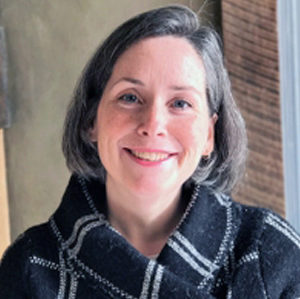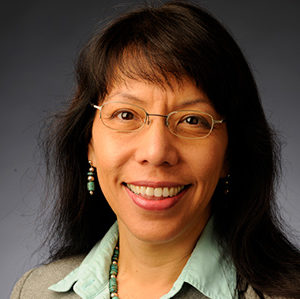Newhouse professors earn DHS funding to help stem extremist content in virtual spaces
Two professors at the S.I. Newhouse School of Public Communications at Syracuse University have been awarded nearly $600,000 in funding from the Department of Homeland Security’s Targeted Violence and Terrorism Prevention (TVTP) Grant Program.

Kelly Leahy, assistant professor of television, radio and film, and T. Makana Chock, David J. Levidow Endowed Professor and director of the Newhouse School’s Extended Reality Lab, will study how media literacy can offer a method for mediating cognitive and emotional responses in an extended (virtual, augmented and mixed) reality environment.
Leahy, Chock and a team of student researchers will create and test media literacy interventions focused on harmful information in virtual spaces in order to inform the prevention of extremism and violent content in the metaverse.

“Immersive virtual spaces such as virtual reality and the metaverse create more visceral emotions than traditional online spaces such as the internet,” Chock says. “This makes the virtual world a potentially high-risk environment for manipulation.”
Adds Leahy, “Terrorist recruiters and violent extremists are active in online social spaces and will most certainly target new forms of technology for their efforts to spread conspiracy theories, air grievances and craft misinformation, disinformation and ‘malinformation’ (reality-based information used to inflict harm).”
The study will identify key concepts and techniques specifically related to persuasion in extended reality contexts and apply these findings to create gamified interventions based on existing research from media literacy. These experiences will be piloted for young adults who are members of the extended reality community.
Emerging evidence suggests that people tend to feel increased empathy in virtual spaces, which could lead to increased manipulation, according to Leahy. Past research has shown that young adults are more likely to be targeted for terrorist recruitment, she adds.
“Extended reality impacts us in ways we are only just beginning to understand,” says Newhouse dean Mark J. Lodato. “The work of Professors Leahy and Chock will play an important role in increasing that understanding and shaping the way we use and moderate these spaces, especially when it comes to young people.”
TVTP seeks to help prevent incidents of domestic violent extremism and bolster efforts to counter online radicalization and mobilization to violence. The Newhouse award was one of 43 grants totaling $20 million awarded this year by the Department of Homeland Security (DHS).
“Working in partnership with one another is how we best prevent acts of terrorism and targeted violence,” said DHS Secretary Alejandro N. Mayorkas in a press release when the grants were announced. “We are equipping local communities and organizations—including those historically underserved—with needed resources so they can become more effective partners, strengthen our security and help the American people feel safe and secure in our daily lives.”